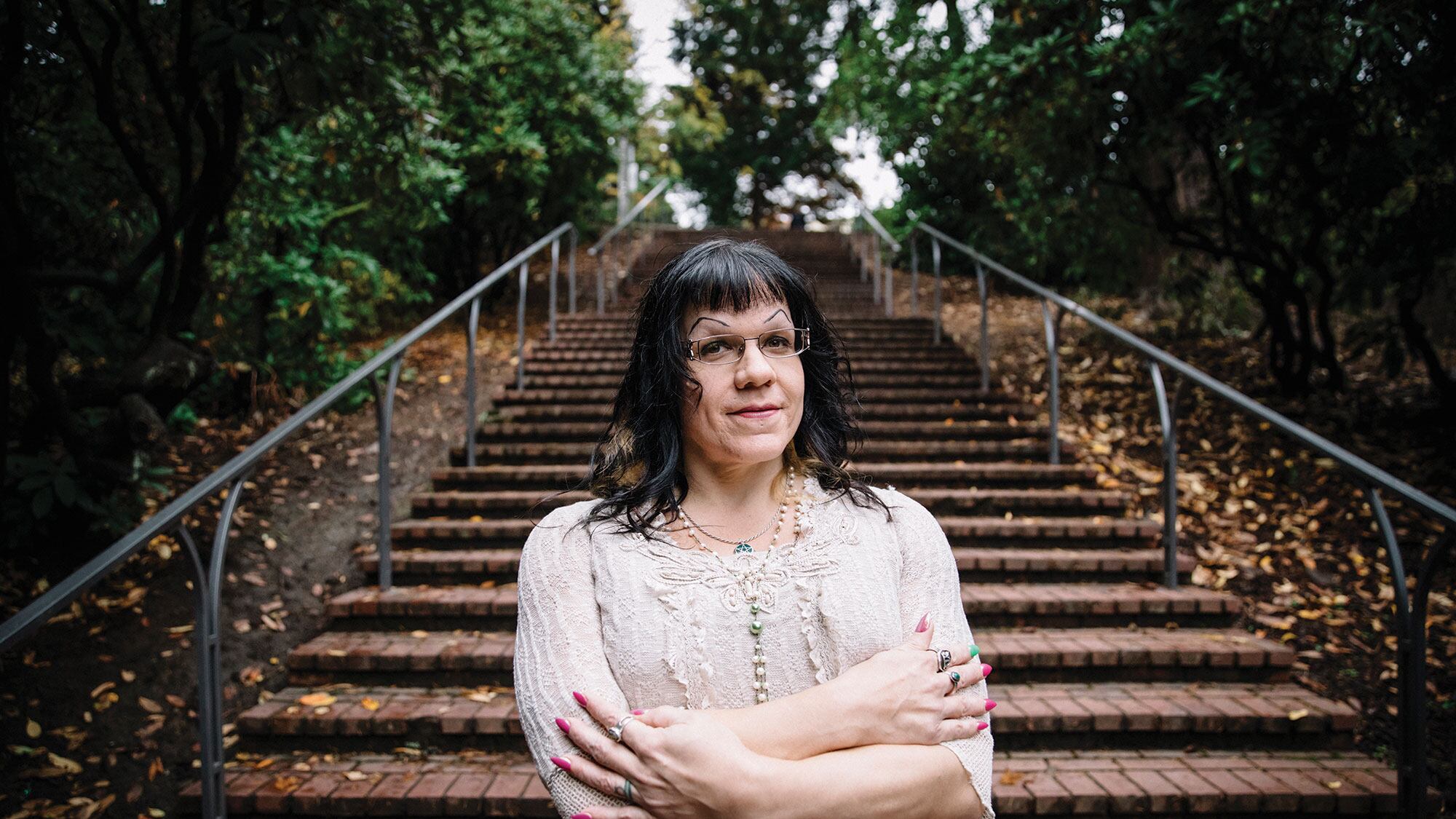Two Sundays ago, Molly Palmer answered nearly a dozen telephone calls—with the calls coming in faster than she's ever seen.
Palmer, 45, is a Portland-based volunteer operator for Trans Lifeline, a peer-to-peer transgender support hotline. It's the only crisis hotline for transgender people in the United States staffed entirely by other trans and non-binary people.
Palmer says a memo leaked Oct. 21 from the Trump administration—which proposes narrowly defining gender as sex assigned at birth—could be life-threatening for countless transgender Americans, who fear they will be left without legal protection.
"The calls have escalated, not just in volume but in intensity," Palmer says. "People are having serious life crises."
Palmer wasn't the only operator working double time on the hotline that night. The nonprofit announced via Twitter it had received on Oct. 22 alone twice its normal number of first-time callers and four times the normal call traffic—up from 187 calls on Oct. 22, 2017, to 471 two Sundays ago.

Palmer moved to Portland from Chicago in 2007 and came out publicly eight years later. She considers herself lucky to live in Oregon, one of the most progressive states for trans-inclusive legislation. Last year, Oregon passed a law simplifying name-change and gender-amendment processes for birth certificates. It also became the first state to offer a third gender maker, "X, " for not specified, on state identification cards. (Palmer says Trans Lifeline Microgrants helped her obtain changes in her legal documents.)
"In Oregon, we are blessed to have some compassion, some understanding of our plight," Palmer says. "That's why I think it's really important for us, if you can, to step up and try and provide some support for our trans siblings everywhere else."
WW spoke with Palmer about her work with Trans Lifeline, the latest Trump memo's effect on Portland's trans community, and what people can do to help.
WW: What were calls like on Sunday night when the memo was leaked?
Molly Palmer: There were so many calls coming in. I was still trying to get a handle on what was going on. I was reading articles in between talking to people.
Their very identity is being called into question. It kind of leads people to thoughts of suicide. It's hard. [Sunday] night, almost every single call was suicidal ideation—people wondering, "What is happening? This can't be happening."
What are some of the immediate implications of this memo on the trans community?
It's just kind of overwhelming. We're trying to figure out what our next best move is. Some would say Trump is using this to rally his conservative fundamentalist base for the elections. On the other hand, it doesn't feel good to us in the trans community when somebody says, "Oh, this is just a distraction." Because this isn't a distraction. This is our lives at stake. If I lost access—and I'm sure I'm not just speaking for myself—in terms of health care and mental health support, I don't know that I would be a very functioning human being.
It was bad enough when I went back to Chicago, which is where I'm from, a few months ago, and going through TSA [at the airport] and getting the gender-anomaly pat-down—like special treatment. It was like, "What the hell is this?" It's one thing to decide not to fly. But to do everything legal, if I have to rely on an identity that's no longer me, I don't know that I could do that. I don't know how anyone could do that.
What is a typical call like?
Some of the calls are short—sometimes a hang-up, which could be somebody who isn't ready to talk or a prank caller. We are trained to wrap up at 45 minutes and try to steer the caller toward positive encouragement and a self-care plan. But it's definitely not always that. Sometimes calls can go on for a few hours. My longest one was three hours.
One of the nice things about being in Oregon is, I stay on until midnight or later, and for East Coast people, that's 3 am. In the middle of the night is sometimes when people have the worst crises. They're worried about the next day, or they wake up thinking about something that happened, or they're in serious suicidal thoughts [and] trying to make it through the night.
Why did you decide to start volunteering with Trans Lifeline?
I remember talking to my therapist about helping with the hotline, but I was sort of nervous. She was like, "You would be good at it. You should do it." I reached out to them, and it was a lot of training. I'm still training. I don't feel like I'm the best operator. I don't feel like I'm even the most dedicated. I think I'm good at compassionate, active listening.
What can people do to support the trans community in Oregon and elsewhere in the nation right now?
Cis people can always be good allies. Stand up for our rights. Defend us. Donate to Trans Lifeline. Reach out to heads of departments. Just remind the people who are serving under this tyrant that we are here, and we need all the support we can get.

